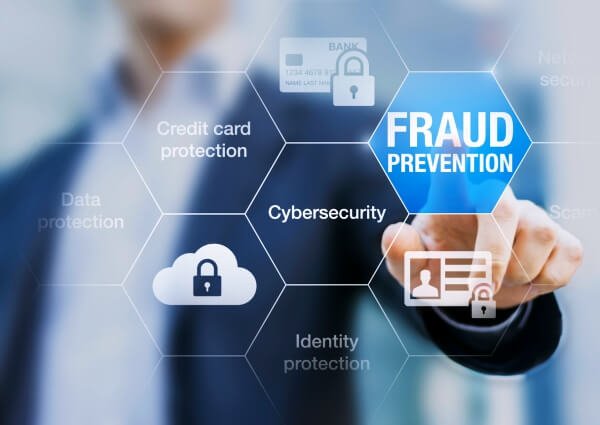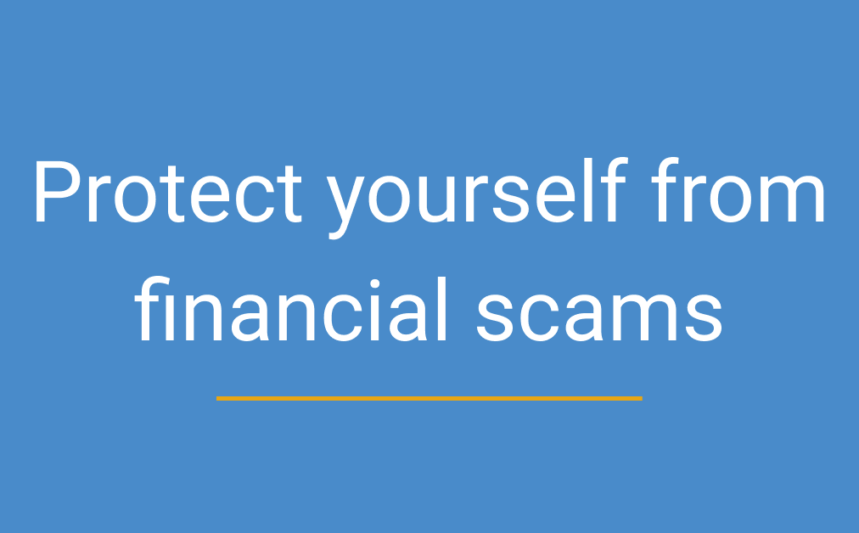Protecting yourself from financial fraud in college is wonderful, but it may be financially burdensome. This blog post teaches you how to defend yourself from financial fraud and keep your hard-earned money safe.

Scam Meaning
A scam is a fraudulent plan or method designed to defraud someone out of something, usually money. Scammers frequently employ dishonest or deceptive tactics to acquire the trust of their victims. Here’s a rundown of what scams usually include:
- Deception: Scammers will lie, mislead, or create a false feeling of urgency to force you to make a decision.
- False Promises: They may claim unreasonable incentives, assured results, or exclusive possibilities.
- Urgency and Pressure: Scammers will frequently use a sense of urgency to get you to act hastily before you have time to think things through.
- Emotional Manipulation: Scammers may use your fear, greed, or desire to help others to control you.
Here are some frequent scams:
- Fake Scholarships & awards: Be aware of unsolicited emails or phone calls that offer “guaranteed” scholarships or awards for a fee. Genuine scholarships and grants never ask for an upfront payment.
- Phishing Scams: These emails or texts look to be from a reputable source, such as your bank or loan servicer, and deceive you into disclosing personal information such as passwords or account details. Never click on any questionable links or attachments.
- Work-from-Home Schemes: Offers promising “easy money” with no work are typically too good to be true. Be wary of professions that need an upfront charge or entail transmitting money or personal information to strangers.
- Roommate Scams: Online rental scams can target students searching for off-campus housing. Double-check listings, never send money without seeing the place in person and be wary of deals that seem too good to be true.
- Social Media Scams: Scammers might use social media to exploit your trust. Be careful about friending or following unknown accounts, and never share sensitive information online.
- Fake product scams: Selling counterfeit or non-existent products through misleading online ads.
- Sweetheart scams: Online relationships where the scammer builds trust and then asks for money.
If you believe you are being targeted by a fraud, it is critical to:
- Stop contacting the scammer.
- Do not send money or any personal information.
- Report the scam to the proper authorities.
Related: Best Scholarship Abroad For International Student

How To Spot A Financial Scam In Simple Steps
Unsolicited offers? Big red flag!
- Be skeptical of incredible discounts or possibilities that appear out of nowhere.
- Did that scholarship arrive in your inbox, promising guaranteed money (for a fee)? Red flag!
- Legitimate offers will not put you under pressure or force you to pay upfront.
Verify, verify, verify!
- Do not click on links or disclose personal information in strange emails or texts.
- Contact the real company (by their official website or phone number) to confirm that they contacted you.
- Sensitive information is never requested over text or email by reputable businesses.
Be Wary When Using the Internet
- Avoid using open WiFi to conduct financial transactions. Networks that are accessible to the public may be weak.
- Put multi-factor authentication and strong passwords on all of your accounts. Share no passwords!
- Investment possibilities or social media transactions from strangers should be avoided.
Keep an Eye on Your Money Like a Hawk
- Make sure to periodically review your credit card records and bank statements for any unusual activity.
- Inform authorities right away of any unlawful transactions. Take action early to reduce damage.
Bonus Advice:
- Read reputable sites to stay up to date on the most recent frauds.
- Consult a financial advisor or your school’s financial assistance office for advice.
If something seems too good to be true, it probably is. By taking these simple actions, you may protect yourself from financial fraud and focus on what is most important: your education and a bright future!
Related: Top 2024 Available Scholarships To Study Abroad

What To Do First If Scammed?
Being scammed can be frustrating, but the faster you respond, the higher your chances of limiting the harm. Here’s what to do initially if you’ve been a victim of a scam:
- Stop communicating with the scammer. Do not respond to any additional emails, messages, or phone conversations from the fraudster. Engaging with them may give them more opportunities to steal your information or pressure you for more money.
Secure Your Accounts:
If you have exchanged any account information, such as passwords or credit card numbers, take urgent measures to secure your accounts.
- Change your passwords. Make secure and unique passwords for all of your online accounts, including bank accounts, credit cards, email, and social media.
- Enable multi-factor authentication (MFA): This provides an extra degree of security by needing a code from your phone or another device when logging in instead of just your password.
- Speak with your credit card issuer or bank: As soon as you can, report the scam to your credit card company or bank. They may be able to reverse improper transactions, assist you in canceling your cards, and keep an eye on your accounts for any additional fraudulent activity.
Inform Others About the Scam:
By reporting the scam, you can assist law enforcement in locating the con artists and avert future victims. To file a report, use these resources:
- Federal Trade Commission (FTC): You can report the scam by phone at 1-877-382-4357 or online.
- Complaint Center for Internet Crimes (IC3): Online reports can be submitted here.
Obtain Proof (Optional):
Having some proof of the fraud can be useful if you need to take additional action, including reporting it to the police or exploring legal possibilities, even if it is not necessary for the first stages. This could consist of:
- Fraudulent texts or emails
- False invoices or receipts
- Internet marketing for fraud
Think About Asking for Assistance: Consult a credit counselor or identity theft specialist for assistance if the fraud resulted in a large financial loss or identity theft. They can offer assistance in getting over the scam’s psychological and financial effects.
Related: Best Nursing Scholarships In 2024

Protecting Yourself From Financial Fraud
Financial fraud is a sneaky villain lurking in the shadows, waiting to steal your hard-earned cash. But fear not, intrepid student! By equipping yourself with knowledge and a few key strategies, you can build a fortress to protect your finances.
Defensive Techniques
- Scrutinize Unsolicited Offers: Be wary of anything that sounds too good to be true. Don’t rush into decisions based on pressure tactics.
- Verification is Key: Always verify the legitimacy of an organization before providing any personal information. Contact them directly through official channels.
- Digital Armor: Use strong, unique passwords and enable multi-factor authentication for all your accounts. Avoid public Wi-Fi for financial transactions.
- Keep an Eye on Your Accounts Like a Hawk: Continually check credit card reports and bank accounts for any unusual behavior. Report inconsistencies right away.
- Knowledge is Power: Read reliable sources and consult financial gurus to stay up to date on the most recent frauds.
Related: Fastweb Scholarships: Unlocking Scholarship Success In 2024

How To Get Money Back From A Nigerian Scammer
Regretfully, getting money back from a fraud in Nigeria can be extremely difficult. This is a summary of the circumstances and a list of possible actions, albeit there is no assurance of success:
Nigerian Recovering Funds From Scams Faces Difficulties
- Scammers’ sophistication: It can be challenging to identify and apprehend scammers due to their intricate plans and cross-border operations.
- Law Enforcement Capacity: The ability of law enforcement to recover stolen funds may be hampered by a lack of resources and administrative roadblocks.
- Civil Legal System: Filing a civil lawsuit against the con artist can be costly, time-consuming, and have unpredictable results.
Extra Advice:
- Seek Professional Assistance: Think about speaking with a lawyer who handles fraud or cybercrime matters; nevertheless, be mindful of the possible expenses.
- Notify International Authorities about the Scam: You can notify the appropriate authorities in Nigeria if the scam has its origins elsewhere.
Reasonable anticipations:
- There are no assurances in the lengthy and difficult process of recovering lost money.
- The likelihood of recovery is greatly impacted by the intricacy of the scam and the location of the con artist.
The Key Is Prevention:
- The best defense against losing money to a scam is being aware and proactive.
- Use the tips mentioned earlier in this conversation to identify and avoid scams.
Remember, while recovering funds might be difficult, reporting the scam helps authorities track scammers and prevent others from falling victim.
Related: How To Communicate Confidence: Body Language Bonanza

Causes Of Most Of Scams
Several key factors contribute to the prevalence of scams, and these factors often work together to create a ripe environment for scamming:
Motivations of the Scammer:
- Financial Gain: This is the most obvious motivator. Scammers aim to steal money or personal information they can use for financial gain, like identity theft or accessing bank accounts.
- Power and Control: Some scammers enjoy the feeling of manipulating and controlling their victims.
- Revenge or Spite: In some cases, scams are fueled by a desire for revenge or to cause harm to a specific person or group.
Opportunities for Scams:
- Technological Advancements: Scammers leverage new technologies like email, social media, and mobile phones to reach a wider audience and create more sophisticated scams.
- Public Trust and Greed: Scammers prey on people’s trust in authority figures or institutions, as well as their desire for quick money or easy solutions.
- Lack of Awareness: People who are unfamiliar with common scams or don’t have strong cybersecurity practices are more vulnerable.
Challenges in Stopping Scams:
- Cross-Border Operations: Scammers often operate across borders, making it difficult for law enforcement agencies in any one country to track them down and prosecute them.
- Rapidly Evolving Tactics: Scammers constantly develop new tactics to stay ahead of law enforcement and detection methods.
- Limited Resources: Law enforcement agencies and regulatory bodies may not have the resources to effectively investigate and prosecute all scams.
Social and Cultural Factors:
- Social Stigma of Being Scammed: Sometimes, victims are reluctant to report scams due to embarrassment or fear of judgment. This lack of reporting allows scammers to continue operating.
- Cultural Differences: To gain victims’ trust and manipulate them, scammers may take advantage of local customs or cultural norms.
How to Act in the Event of a Scam:
- Report It: Notify the appropriate authorities, such as your local consumer protection organization or the Federal Trade Commission (FTC), about the fraud attempt.
- Get in Touch with Your Financial Institution: Report the situation and safeguard your accounts right away if you believe your financial information has been compromised by getting in touch with your bank or loan servicer.
Related: Building Rapport In Interview With Your Potential Employer
Conclusion
Being knowledgeable and vigilant can dramatically lower your risk of becoming a victim of financial scams. Protect your hard-earned money while focusing on the exciting journey of your academic career!
Stay safe, and informed, and enjoy your college experience!

